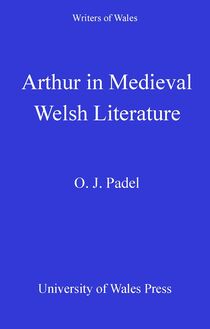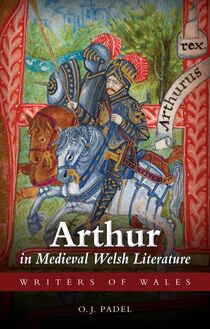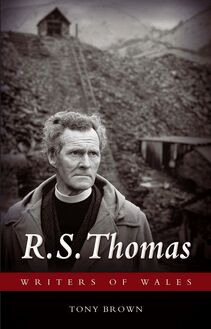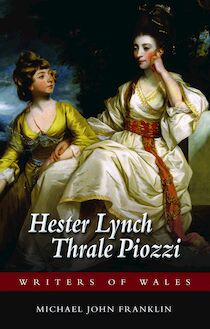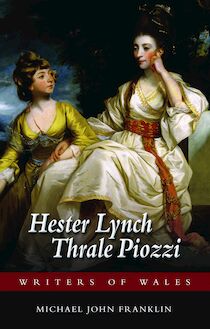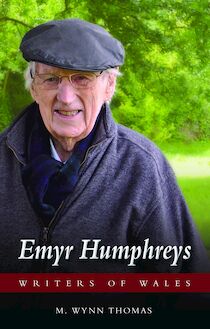-
 Univers
Univers
-
 Ebooks
Ebooks
-
 Livres audio
Livres audio
-
 Presse
Presse
-
 Podcasts
Podcasts
-
 BD
BD
-
 Documents
Documents
-
- Cours
- Révisions
- Ressources pédagogiques
- Sciences de l’éducation
- Manuels scolaires
- Langues
- Travaux de classe
- Annales de BEP
- Etudes supérieures
- Maternelle et primaire
- Fiches de lecture
- Orientation scolaire
- Méthodologie
- Corrigés de devoir
- Annales d’examens et concours
- Annales du bac
- Annales du brevet
- Rapports de stage
La lecture à portée de main
Vous pourrez modifier la taille du texte de cet ouvrage
Découvre YouScribe en t'inscrivant gratuitement
Je m'inscrisDécouvre YouScribe en t'inscrivant gratuitement
Je m'inscrisEn savoir plus
Vous pourrez modifier la taille du texte de cet ouvrage
En savoir plus

Description
Around the turn of the century, Welsh readers thrilled to the heroic stories of Owen Rhoscomyl. Having been a cowboy, frontiersman, soldier and mercenary, Rhoscomyl was as adventurous and exotic as his stories. Roving the wilds of the American West, Patagonia and South Africa before finally settling in Wales, Rhoscomyl was a flawed hero who led a rough life that exacted a personal price in poverty, delinquency and violence. He identified deeply with the Welsh nation as a source of tradition, legitimacy and belonging within a wider imperial world. As a popular commercial writer of historical romance, imperial adventure, popular history and public spectacle, he rejected accusations of national inferiority, effeminacy and defeatism in his depictions of the Welsh as an inherently masculine and martial people, accustomed to the rugged conditions of the frontier, ready to advance the glory of their nation and eager to lead the British imperial enterprise. This literary biography will explore the vaulting ambitions, real achievements, and bitter disappointments of the life, work and milieu of Owen Rhoscomyl.
Sujets
Informations
| Publié par | University of Wales Press |
| Date de parution | 15 novembre 2016 |
| Nombre de lectures | 0 |
| EAN13 | 9781783169511 |
| Langue | English |
Informations légales : prix de location à la page 0,0500€. Cette information est donnée uniquement à titre indicatif conformément à la législation en vigueur.
Extrait
Writers of Wales
Owen Rhoscomyl
Editors:
Jane Aaron
M. Wynn Thomas
Andrew Webb
Honorary Series Editor:
R. Brinley Jones
Other titles in the Writers of Wales series:
Dylan Thomas (2014), Walford Davies
Gwenlyn Parry (2013), Roger Owen
Welsh Periodicals in English 1882–2012 (2013), Malcolm Ballin
Ruth Bidgood (2012), Matthew Jarvis
Dorothy Edwards (2011), Claire Flay
Kate Roberts (2011), Katie Gramich
Geoffrey of Monmouth (2010), Karen Jankulak
Herbert Williams (2010), Phil Carradice
Rhys Davies (2009), Huw Osborne
R. S. Thomas (2006), Tony Brown
Ben Bowen (2003), T. Robin Chapman
James Kitchener Davies (2002), M. Wynn Thomas
Writers of Wales
Owen Rhoscomyl
John S. Ellis
© John S. Ellis, 2016
All rights reserved. No part of this book may be reproduced in any material form (including photocopying or storing it in any medium by electronic means and whether or not transiently or incidentally to some other use of this publication) without the written permission of the copyright owner except in accordance with the provisions of the Copyright, Designs and Patents Act 1988. Applications for the copyright owner’s written permission to reproduce any part of this publication should be addressed to the University of Wales Press, 10 ColumbusWalk, Brigantine Place, Cardiff, CF10 4UP.
www.uwp.co.uk
British Library Cataloguing-in-Publication Data A catalogue record for this book is available from the British Library.
ISBN 978-1-78316-949-8 eISBN 978-1-78316-951-1
The right of John S. Ellis to be identified as author of this work has been asserted by him in accordance with sections 77, 78 and 79 of the Copyright, Designs and Patents Act 1988.
The publisher acknowledges the financial support of the Welsh Books Council.
Cover image: Robert Mills (Owen Rhoscomyl) as a cowboy. Reproduced with kind permission of the National Library of Wales.
Contents
Acknowledgements
List of illustrations
1 Cowboy 1863–1886
2 Romancer 1886–1899
3 Scout 1899–1902
4 Flame-bearer 1903–1908
5 Knight Errant 1909–1918
Notes
Bibliography
Acknowledgements
I am grateful to many individuals and institutions for their assistance and support in this project. In particular, I am indebted to Vicki and Keith Matthew for not only their permission to use and quote from their private collection of family letters and papers but for their kindness, hospitality and friendship. I would also like to acknowledge the late Alice and Dorothy Stott who preserved the family letters and passed them on to the Matthews. I am grateful to Geoffrey Pocock for the use of his private collection, friendship and many stimulating discussions regarding the Legion of Frontiersmen. I want to acknowledge Janet Rietz who discovered the sources on the hospital incident and gave invaluable assistance by providing me with copies of archival material from South Africa. Hazel Walford Davies gave much appreciated assistance regarding Lord Howard de Walden and the National Theatre of Wales. I would like to thank the many individuals with special information with whom I have corresponded and consulted, including David Bath for his help with the history of Mawddach Crescent, and Jim Wallace and Neil G. Speed for sharing their knowledge of the Canadian Scouts. I am grateful to the late historians Hywel Teifi Edwards and Bryn Owen for their interest and kindness. I am very much indebted to Professors Paul O’Leary, Chris Williams and Bill Jones for their mentorship over the years and for their patience and encouragement during manic conversations where I have rambled on endlessly about Rhoscomyl. In a similar vein, I would like to thank my wife Karen, my children Rhys and Jaclyn, and my parents Bob and Donna for sharing me with the shade of Rhoscomyl over the last several years. I would like to thank Joscelyn M. Davies for her kind permission to quote from the J. Glyn Davies Papers and the staff of the National Library of Wales and the National Archives for all their good work and assistance. I have appreciated the opportunity to discuss my project with colleagues at the conferences of the North American Association for the Study of Welsh Culture and History and the Association for Welsh Writing in English. I am grateful to Llion Wigley, the editorial board for the Writers of Wales series, their anonymous reader and the staff of the University of Wales Press for their interest and assistance. I am grateful for the funding and support for this study from the University of Michigan-Flint Department of History and the Office of Research as well as from the Eisenberg Center for History at the University of Michigan-Ann Arbor.
Illustrations
1: Robert Mills as a cowboy. Reproduced with kind permission of the National Library of Wales.
2: Robert Milne in the Royal Dragoons, c .1890. Reproduced with kind permission of the National Library of Wales.
3: Illustration from The Jewel of Ynys Galon (1895).
4: A. O. Vaughan bearing the ‘tiger’s claw’ in Rimington’s Tigers. Reproduced with kind permission of Vicki Matthew.
5: Katherine Vaughan. Reproduced with kind permission of Vicki Matthew.
6: Lily Rautenbach displaying her wounds from the hospital attack. From Emily Hobhouse, War without Glamour (Bloemfontein, 1924).
7: Owen Rhoscomyl, c .1910. Reproduced with kind permission of the National Library of Wales.
8: The Legion of Frontiersmen with A. O. Vaughan, second from the right. From The Sketch , 1 July 1895.
9: Illustration from Lone Tree Lode (1912).
10: A. O. Vaughan in the First World War, c .1915. Reproduced with kind permission of the National Library of Wales.
1
Cowboy 1863–1886
Although an influential and versatile pioneer of Welsh writing in English, Owen Rhoscomyl is an almost forgotten figure in the literary history of Wales. With its breathless tone of soaring romance and melodrama, Rhoscomyl’s florid prose has often been dismissed or ignored by scholars. A staunch Welsh nationalist as well as a monarchist and imperial patriot, Rhoscomyl held views that further estranged his work from the conventional narrative of Welsh history and literature. Yet, Owen Rhoscomyl was a popular commercial writer and a public personality in Edwardian Wales. Exploiting his colourful past as a cowboy, adventurer and war hero, he became a minor celebrity and a well-known advocate of Welsh cultural nationalism, particularly in south Wales. Rhoscomyl strove to create a heroic and inspirational past for the Welsh nation through his novels, short stories, journalism and historical writing. Often featuring gallant Welsh characters, he also wrote short stories and three adventure novels of a semi-autobiographical nature set in the American west, Patagonia and South Africa.
His was a distinctly Welsh contribution to the historical romance and adventure fiction epitomized by such authors as Sir Walter Scott, Robert Louis Stevenson and Stanley Weyman. Seeking to further engage the masses, Rhoscomyl experimented with other genres and would extend his popular literary campaign into the production of spectacle and drama, playing major roles in the National Pageant of Wales (1909), the investiture of the prince of Wales (1911) and the movement towards a national theatre of Wales (1912–14). Sensitive to accusations of national inferiority and defeatism, Rhoscomyl depicted the Welsh as an inherently martial people, accustomed to the rugged conditions of the frontier, ready to advance the glory of their nation and eager to lead the British imperial enterprise. Along with his celebrated contemporary Allen Raines, Rhoscomyl was a pioneer of Welsh writing in English. Although aimed at a broad buying public and sold on four continents, his work was written primarily with a Welsh audience in mind. With no pretentions to literary greatness, his work was overtly commercial and spoke to many in ‘imperial Wales’ whose Welsh nationalism and British imperialism were mutually compatible sentiments. Widely distributed across libraries and schools in early twentieth-century Wales, Rhoscomyl’s heroic image of the Welsh continued to inspire schoolboys beyond his death in 1919. Indeed, Roland Mathias, the father of Anglo-Welsh literary studies, once confessed that his own Welsh identity was awoken by a Rhoscomyl adventure novel he read as a boy. Owen Rhoscomyl is an important if over-looked and unconventional figure in the history of modern Welsh literature, a voice that speaks to the imperial dimension of the Welsh experience and to the multiple ways in which Welsh national identity has been imagined, projected and contested.
* * *
According to public records, Owen Rhoscomyl was born in 1863 with the more prosaic name Robert Scowfield Mills. His father, Robert Mills, was a skilled mason from the hills of Rochdale who in 1855 married Jane Ann Schofield. Residing in Rochdale before relocating to the growing resort town of Southport, Jane Ann gave birth to four children by Robert, but only two of them survived infancy: Robert and his elder sister Ada, who was born in 1861. In 1863, a scant few days after his son’s birth, the elder Robert Mills was killed in a construction accident. In 1865, the widowed mother married Luke Etchells, an iron moulder from Droylesden. Relocating with her family several times across the industrial suburbs of Manchester, Jane Ann gave birth to another three children, only one of whom survived infancy. She herself succumbed to tuberculosis in 1869 at the age of thirty-four. Her death left her second husband to care not only for his own son, Philip Etchells (age four), but also his two stepchildren, Ada (eight) and Robert Mills (six). Perhaps alarmed by this prospect, Robert’s 72-year-old maternal grandmother, Anne Jones Gill, joined the household to care for the children, keep the house and contribute to the family income with her wages as a laundress.
The primary figure in Rhoscomyl’s youth was the formidable and proud
-
 Univers
Univers
-
 Ebooks
Ebooks
-
 Livres audio
Livres audio
-
 Presse
Presse
-
 Podcasts
Podcasts
-
 BD
BD
-
 Documents
Documents
-
Jeunesse
-
Littérature
-
Ressources professionnelles
-
Santé et bien-être
-
Savoirs
-
Education
-
Loisirs et hobbies
-
Art, musique et cinéma
-
Actualité et débat de société
-
Jeunesse
-
Littérature
-
Ressources professionnelles
-
Santé et bien-être
-
Savoirs
-
Education
-
Loisirs et hobbies
-
Art, musique et cinéma
-
Actualité et débat de société
-
Actualités
-
Lifestyle
-
Presse jeunesse
-
Presse professionnelle
-
Pratique
-
Presse sportive
-
Presse internationale
-
Culture & Médias
-
Action et Aventures
-
Science-fiction et Fantasy
-
Société
-
Jeunesse
-
Littérature
-
Ressources professionnelles
-
Santé et bien-être
-
Savoirs
-
Education
-
Loisirs et hobbies
-
Art, musique et cinéma
-
Actualité et débat de société
- Cours
- Révisions
- Ressources pédagogiques
- Sciences de l’éducation
- Manuels scolaires
- Langues
- Travaux de classe
- Annales de BEP
- Etudes supérieures
- Maternelle et primaire
- Fiches de lecture
- Orientation scolaire
- Méthodologie
- Corrigés de devoir
- Annales d’examens et concours
- Annales du bac
- Annales du brevet
- Rapports de stage



